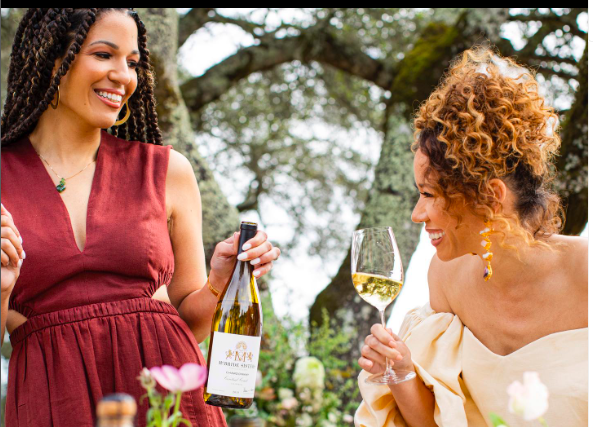For almost half their lives, the McBride sisters didn’t know each other existed. Robin McBride had grown up in California and Andréa McBride-John in New Zealand, and the two only met in 1999, after the death of their father. One of his last requests to his family was to find his daughters and tell them about each other. The family located Andréa after a long search and invited her to visit them in Alabama. While she was there Robin called. Speaking for the first time, the sisters immediately made plans to get together—the next day, in New York. “As soon as we met, we recognized each other immediately and hugged,” Andréa recalls. “There was an instant bond.”

Andréa began studying at the University of Southern California, and in the coming years the two met frequently. Both had grown up in areas thick with vineyards—Andréa in Marlborough, at the northern tip of New Zealand’s South Island, and Robin in Monterey, California—so wine was typically on the table and on the list of things they talked about. One point they kept coming back to: The industry was overwhelmingly White and male, with only 1% of US wine producers owned by Black people. As Black women, they thought, they could begin to change that. “We had a lot of pushback as to whether or not Black women even drank wine, or if Black women could run a wine business,” Robin says. “This fueled our passion and our mission.”
In 2005 they decided to jump into the business, but since they had scant experience they began slowly, importing wines from producers Andréa knew in New Zealand. Four years later, they began producing their own vintages there, and in 2014 they formed a partnership with spirits giant Diageo to create and sell a California wine called Truvée. “We didn’t have any wine business expertise and no capital, but we did have a lot of passion,” Andrea says. “I think we had the naivete to not fully understand what we were embarking on, so it didn’t scare us.”
The Diageo partnership lasted just two years, and in 2017, seeking greater control of the business, they formed their own label, using grapes from suppliers across California and New Zealand. They soon introduced McBride Sisters Collection Reserve vintages, Black Girl Magic wine and She Can spritzers and coolers (delivered, of course, in cans). Deals they’ve sealed with big US supermarket chains and online retailers helped the company more than double sales last year.
For the sisters, inclusivity and equity are paramount. The McBride Sisters Wine Co. is the world’s biggest Black-owned winery. Just over half their employees are people of color, and 93% are women—including the entire winemaking team.
As the business has grown, the two have sought to give back to their community. In 2019 they launched the She Can Development Fund, which mentors women in the industry and offers scholarships and grants. Over the past three years, the sisters have contributed over $400,000 to the fund, Meta Platforms Inc. kicked in $2 million, and other companies have helped out with smaller amounts. In total, the fund has provided more than $3 million to 3,000 women in spirits, hospitality, consumer goods and more. “We got to a place in our business growth where we felt we can help other women,” Robin says.
The sisters have since launched various brand extensions and innovative strategies to raise their profile: a book club where titles are paired with one of their vintages, a wine club, and wine- and food-themed events across the US and Caribbean. But while the business is thriving and anecdotal evidence indicates there are more people of color among vintners these days, they insist much more must be done before the industry can really be called diverse. “There is definitely a generational change happening, with more women and people of color in middle management positions,” Andréa says. Adds Robin: “Success will be when the industry fully represents the world around us and isn’t dominated by one gender or race, but represents the consumer.”
More stories like this are available on bloomberg.com.




